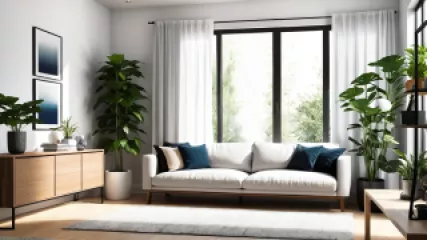Mastering Your Emotions Through Decluttering: The Ultimate Guide
Have you ever noticed how clutter can affect your emotions? The state of our physical environment has a significant impact on our mental well-being. Living in a cluttered space can lead to feelings of overwhelm, stress, and anxiety. However, there is a powerful tool that can help us regain control over our emotions and create a harmonious living environment: decluttering.
The Emotional Effects of Clutter
Clutter not only occupies physical space but also occupies mental and emotional space. When our surroundings are cluttered, it can be challenging to focus, relax, and find peace of mind. Here are some ways in which clutter affects our emotions:
- Increased Stress: Clutter can trigger the body's stress response, leading to heightened levels of cortisol, the stress hormone. This can leave us feeling constantly on edge and overwhelmed.
- Feeling Overwhelmed: A cluttered space can create a sense of chaos and overwhelm. It becomes difficult to prioritize tasks and make decisions when there is an abundance of visual stimuli.
- Decreased Productivity: Clutter can be a major distraction, making it challenging to focus on important tasks. It drains our mental energy and decreases productivity.
- Anxiety and Restlessness: Living in a cluttered environment can evoke feelings of anxiety and restlessness. The constant reminder of unfinished tasks and disorganization can contribute to a sense of unease.
- Lowered Self-Esteem: Clutter can make us feel ashamed or embarrassed about our living conditions. It can lower self-esteem and make us hesitant to invite others into our homes.
Understanding the emotional effects of clutter is the first step towards taking control of our emotions and reclaiming our living spaces.
Virtual Therapy for Clutter Problems
If you find yourself struggling with clutter-related emotional issues, virtual therapy can be a valuable resource. Therapists specializing in clutter-related concerns can provide guidance and support to help you navigate the emotional challenges associated with decluttering.
Virtual therapy sessions allow you to connect with a professional from the comfort of your own home. These sessions provide a safe space to explore the emotional roots of clutter and develop strategies to overcome them.
A virtual therapist can help you:
- Identify the emotional barriers that contribute to clutter
- Develop healthy coping mechanisms for stress and anxiety
- Set realistic goals for decluttering
- Address any underlying mental health issues
- Create a personalized plan for maintaining a clutter-free environment
Through virtual therapy, you can gain insights into the emotional aspects of clutter and receive professional guidance as you embark on your decluttering journey.
Managing Emotions Through Decluttering: Tips and Strategies
Decluttering not only transforms our physical space but also has a profound impact on our emotional well-being. Here are some practical tips and strategies to manage your emotions through decluttering:
1. Start Small
Begin by tackling small areas or categories of items. This helps prevent overwhelm and allows you to experience the positive emotions associated with progress and accomplishment.
2. Set Realistic Goals
Establish realistic goals and timelines for your decluttering journey. Breaking down larger tasks into smaller, manageable steps will help you stay motivated and maintain a sense of control.
3. Practice Mindfulness
Bring mindfulness into your decluttering process by staying present and fully engaged in the task at hand. Focus on the sensations of organizing, sorting, and letting go.
4. Sort and Categorize
Create designated areas for different categories of items. Sorting and categorizing helps create a sense of order and makes it easier to find things when needed.
5. Let Go of Emotional Attachments
Emotional attachments to possessions can make it difficult to let go of clutter. Reflect on the emotions associated with items and consider whether they align with your current values and goals.
6. Seek Support
Reach out to friends, family, or a professional organizer for support during your decluttering journey. Having someone to hold you accountable and provide encouragement can make the process more enjoyable.
7. Create Systems for Maintenance
Develop sustainable systems for maintaining a clutter-free environment. Regularly reassess your belongings and implement habits that prevent clutter from accumulating in the future.
Decluttering is not just about creating an organized physical space; it's about nurturing our emotional well-being and creating a space that supports our mental health.Tom Gomez
Conclusion
Mastering your emotions through decluttering is a transformative journey that goes beyond tidying up physical spaces. By understanding the emotional effects of clutter, seeking virtual therapy when needed, and implementing practical strategies, you can regain control over your emotions and create a harmonious living environment.
Remember, decluttering is not a one-time task but an ongoing practice. Regularly reassess your living space, let go of items that no longer serve you, and prioritize emotional well-being. Embrace the power of decluttering to cultivate a calm and peaceful living environment.






